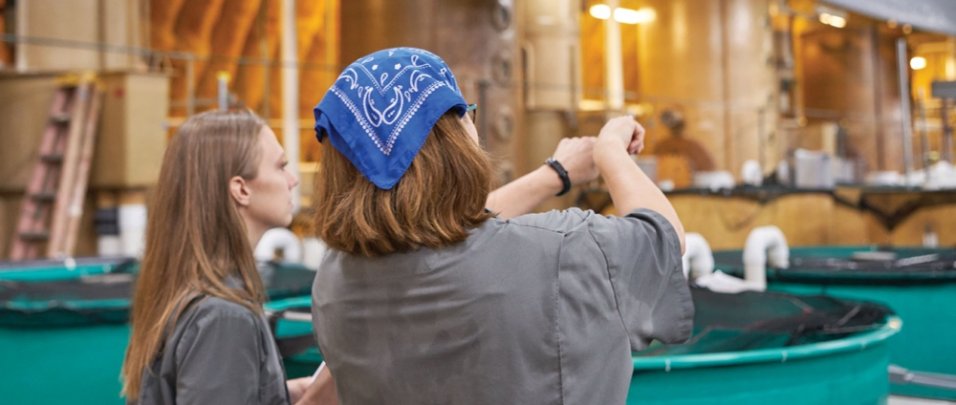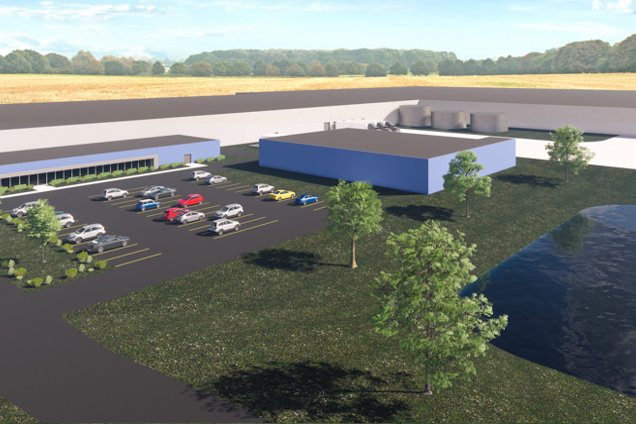AquaBounty Technologies, a publicly traded land-based aquaculture company headquartered in Maynard, Massachusetts, on November 2 provided an update on the progress of its planned large-scale salmon farm in Pioneer, Ohio (illustrated in the rendering above).
“We have made solid progress towards finalizing site engineering designs and permitting since our site announcement in July,” said CEO Sylvia Wulf. “With hydrology studies complete, confirming that the quantity and quality of water available meets our needs as well as the needs of the local community, key water and environmental permits are currently underway. We remain on track with our preliminary timing estimates to commence construction by year-end, with commercial stocking of salmon estimated to occur in 2023.
“As we’ve progressed on the final design for the 10,000 metric ton farm, we have been able to further refine our expected project cost, which we estimate to be in the range of $290 million to $320 million, including a reserve for potential contingencies of $30 million. The increase from our previous estimates is attributable to several factors, including the cost of building materials and the Recirculating Aquaculture System technology, along with the inclusion of an on-site processing plant and water treatment facility.”

The company’s capitalization plan for financing the project includes leveraging its equity contribution with debt. As such, AquaBounty has begun the process for the placement of a mix of tax-exempt and taxable bonds through the Toledo-Lucas County Port Authority, whose board has approved the issuance of up to $300 million in bonds to support the financing of the project. Wells Fargo Corporate and Investment Banking has also been engaged to underwrite and market the bond placement, which is expected to complete in Q1 2022.
“Though there is still work to be done to close this transaction, we believe that this financing will be a major milestone for the company,” said Wulf.
In a move to support the egg requirements of the Ohio farm, and future farms, AquaBounty aims to transition its grow-out farm operation on Prince Edward Island, Canada, to the production of traditional salmon broodstock, eggs and fry, in addition to producing genetically engineered salmon eggs. This is expected to occur over the next two years and increase capacity of egg output from 8 million to 30 million annually.
“There is an increasing demand for traditional salmon eggs in North America, and so our increased egg production capacity is expected to supply both our own needs and create an additional revenue stream from traditional salmon eggs,” said the chief executive officer.






